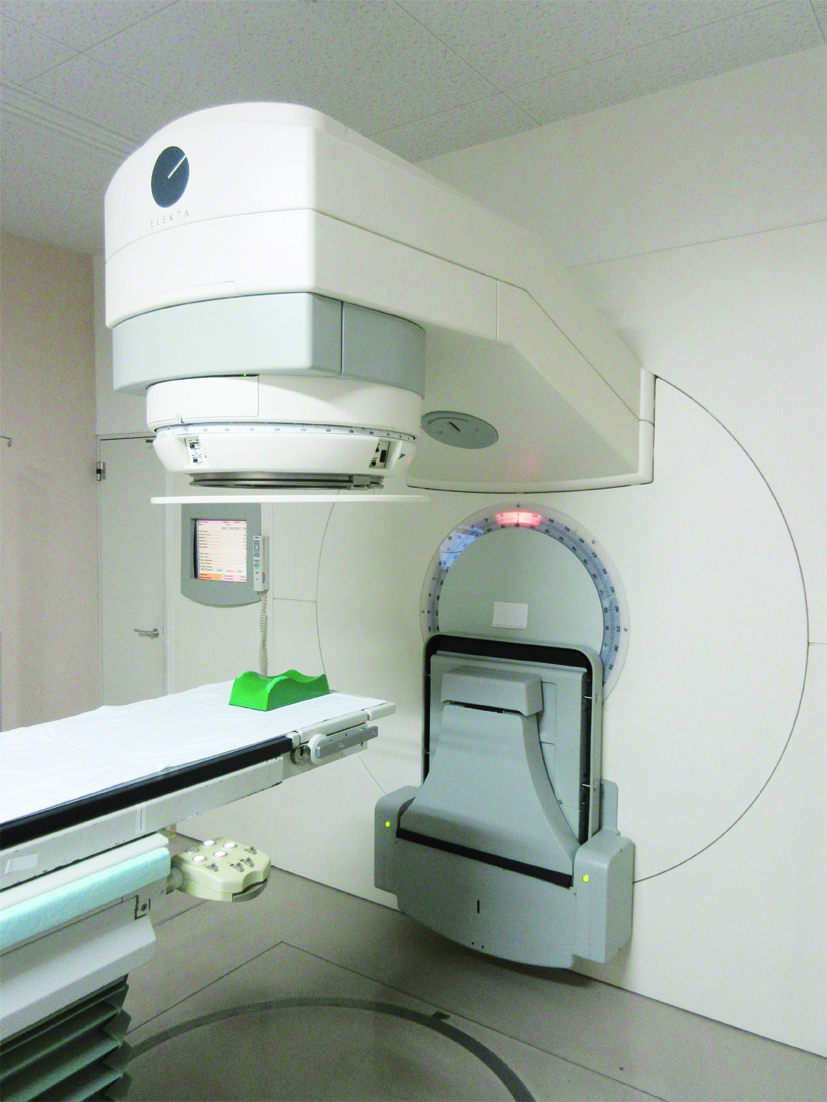Program details
High-Precision Radiation Therapy 【Kishiwada Tokushukai Hospital】
Radiology Department
Kishiwada Tokushukai Hospital(Kinki/Osaka)
High-Precision Radiation Therapy for Gentle on the Body Cancer Treatment
Our radiation therapy utilizes the advanced high-precision Radixact system, targeting only the tumor to provide patient-friendly treatment.
- Genres
-
- Department
- Disease
- Examination Items/Treatments/Surgical method
- Region/Organ
- Program Summary
- The Radiology Department staff consists of 3 full-time radiologists, 15 part-time radiologists, 41 radiologic technologists, and 1 administrative staff member.
Key diagnostic and therapeutic equipment includes 3 CT scanners, 2 MRI machines, 4 angiography systems, 3 X-ray fluoroscopy units, 1 nuclear medicine device, 1 PET-CT scanner, 6 ultrasound machines, and 1 linear accelerator.
Our department focuses on comprehensive imaging diagnostics (such as plain X-ray, ultrasound, CT, MRI, and angiography) to deliver high-quality diagnostic information promptly to attending physicians.
For imaging tests requested by other hospitals, we immediately fax the imaging findings. A 24-hour system is in place to accommodate emergency tests, and we also conduct scheduled MRI exams on holidays.
Additionally, we actively perform interventional radiology (IVR) procedures, including arterial embolization for liver tumors, gastrointestinal bleeding, hemoptysis, and trauma-related bleeding; transcatheter venous embolization for gastric varices; intra-arterial chemotherapy for cancer; reservoir placement; and CT-guided biopsies.
- Medical Institutions
-
Kishiwada Tokushukai Hospital
〒596-0042
4-27-1 Kamoricho, Kishiwada City
- Examination Items
- Setup Date
- Excluded days
- Required Days/Hours
- Start/end time
- Eligibility Criteria/Exclusions for Treatment
- Eligibility Criteria
1. Medical Information:
- Diagnosis (type and location of cancer)
- Cancer progression and metastasis status (stage)
- Test results from other hospitals (CT, MRI, PET imaging)
- Presence of comorbidities (heart disease, diabetes, kidney disease, etc.)
2. Treatment History:
- Previous cancer treatments (surgery, chemotherapy, radiation therapy)
- Current medications (anticoagulants, hormone therapy, painkillers, etc.)
- History of allergies or adverse drug reactions
3. Physical Fitness and Age:
- Confirmation that elderly or comorbid patients can tolerate radiation therapy
- Evaluation of whether the patient has the physical strength to follow long-term treatment plans
4. Pre-Treatment Tests and Preparation:
- Completion of necessary pre-treatment tests (blood tests, ECG, etc.)
- Availability of precise imaging diagnostics (CT, MRI) to determine tumor location
5. Follow-Up and Lifestyle Guidance During and After Treatment:
- Willingness to cooperate with regular follow-up visits
- Compliance with side effect management and lifestyle guidance during radiation therapy
- Precautions / Contraindications
- Precautions and Contraindications
1. Cases Not Suitable for Treatment:
- Patients with severe cardiopulmonary dysfunction or poor function of other organs may not be suitable for radiation therapy.
- Patients with radiation hypersensitivity or a history of radiation exposure to the same area may not qualify for treatment.
- Pregnant patients should avoid radiation therapy due to potential risks to the fetus.
2. Risks of Side Effects Associated with Treatment:
- Skin inflammation, dryness, redness, and itching may occur as side effects of radiation therapy.
- Depending on the treatment area, gastrointestinal symptoms (diarrhea, nausea) or urinary symptoms (frequent urination, painful urination) may develop.
- A weakened immune system may increase the risk of infections, making proper health management essential.
---
Important Notes to Communicate in Advance
1. Preparation Before Treatment:
- If taking anticoagulants or antiplatelet drugs, follow the doctor’s instructions to discontinue or adjust them.
- Necessary tests, such as blood tests and imaging scans, should be completed before treatment to confirm the precise tumor location and finalize the treatment plan.
2. Managing Side Effects During Treatment:
- Consult a doctor promptly if experiencing skin abnormalities, pain, or changes in overall health during treatment.
- Follow medical advice for gastrointestinal or urinary symptoms and address them as needed.
3. Lifestyle and Daily Care:
- Protect the skin during treatment by washing gently during baths and applying moisturizers to prevent irritation.
- Maintain a balanced diet and get adequate sleep to help prevent a weakened immune system.
4. Regular Follow-Up:
- Attend regular follow-up appointments after treatment to monitor progress and check for side effects or recurrence signs.
- Report any recurrence of symptoms or changes in health to the doctor promptly.
5. Emergency Response:
- Contact a medical facility immediately if fever, severe pain, bleeding, or intense nausea occurs after discharge.
- Ensure contact details for emergency-capable medical facilities and the attending physician are readily available.



